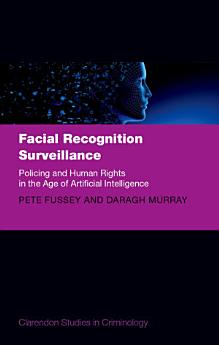Facial Recognition Surveillance: Policing and Human Rights in the Age of Artificial Intelligence
Jun 2025 · Oxford University Press
Ebook
336
Pages
family_home
Eligible
info
reportRatings and reviews aren’t verified Learn More
About this ebook
Scanning millions of faces each year, facial recognition technology (FRT) has become one of today's fastest growing and most controversial AI-driven surveillance technologies. Based on rare ethnographic access to police FRT deployments, Facial Recognition Surveillance: Policing and Human Rights in the Age of Artificial Intelligence delves into the profound impact of FRT on policing practices, surveillance capabilities, and human rights protections. It reveals how this technology shapes, and is also shaped by, the complex environments in which it is deployed, dramatically reshaping police-citizen interactions. This book exposes the selective scientific and legal narratives that justify the expansion of AI-driven surveillance. It draws on cutting-edge human rights theory to propose a due diligence framework tailored to police use of FRT and introduces the concept of 'compound human rights harm' to capture the multifaceted impact of surveillance. Integrating insights from the sociology of policing, science and technology studies, and human rights scholarship, this book advances a theoretically novel and empirically informed perspective that positions FRT as a socio-technical system capable of altering the fundamental nature of policing.
About the author
Pete Fussey is a Professor of Criminology at the University of Southampton and researches the human rights implications of advanced surveillance and other policing technologies. His other published work analyses digital sociology, algorithmic justice, and urban studies. He has authored work laid before the UN General Assembly; co-authored UN human rights standards on police technology at protests; and co-directed the ESRC Human Rights, Big Data and Technology project (2015-2023). Professor Fussey's research has featured on the front pages of The Guardian and Financial Times, and additionally covered by BBC Newsnight, PBS Newshour, The New York Times, Washington Post, BBC Radio 4 and others. Daragh Murray is a Senior Lecturer at Queen Mary University London School of Law, and a Fellow of the Institute of Humanities and Social Sciences. He specialises in international human rights law and the law of armed conflict, with an interest in artificial intelligence and other advanced technologies. He has been awarded a UKRI Future Leaders Fellowship to examine the 'unintended consequences' of artificial intelligence, with an emphasis on understanding the links between surveillance and the processes central to individual's identity development and the evolution of democratic societies. He was previously a member of the UKRI funded Human Rights, Big Data & Technology Project.
Rate this ebook
Tell us what you think.
Reading information
Smartphones and tablets
Install the Google Play Books app for Android and iPad/iPhone. It syncs automatically with your account and allows you to read online or offline wherever you are.
Laptops and computers
You can listen to audiobooks purchased on Google Play using your computer's web browser.
eReaders and other devices
To read on e-ink devices like Kobo eReaders, you'll need to download a file and transfer it to your device. Follow the detailed Help Center instructions to transfer the files to supported eReaders.





